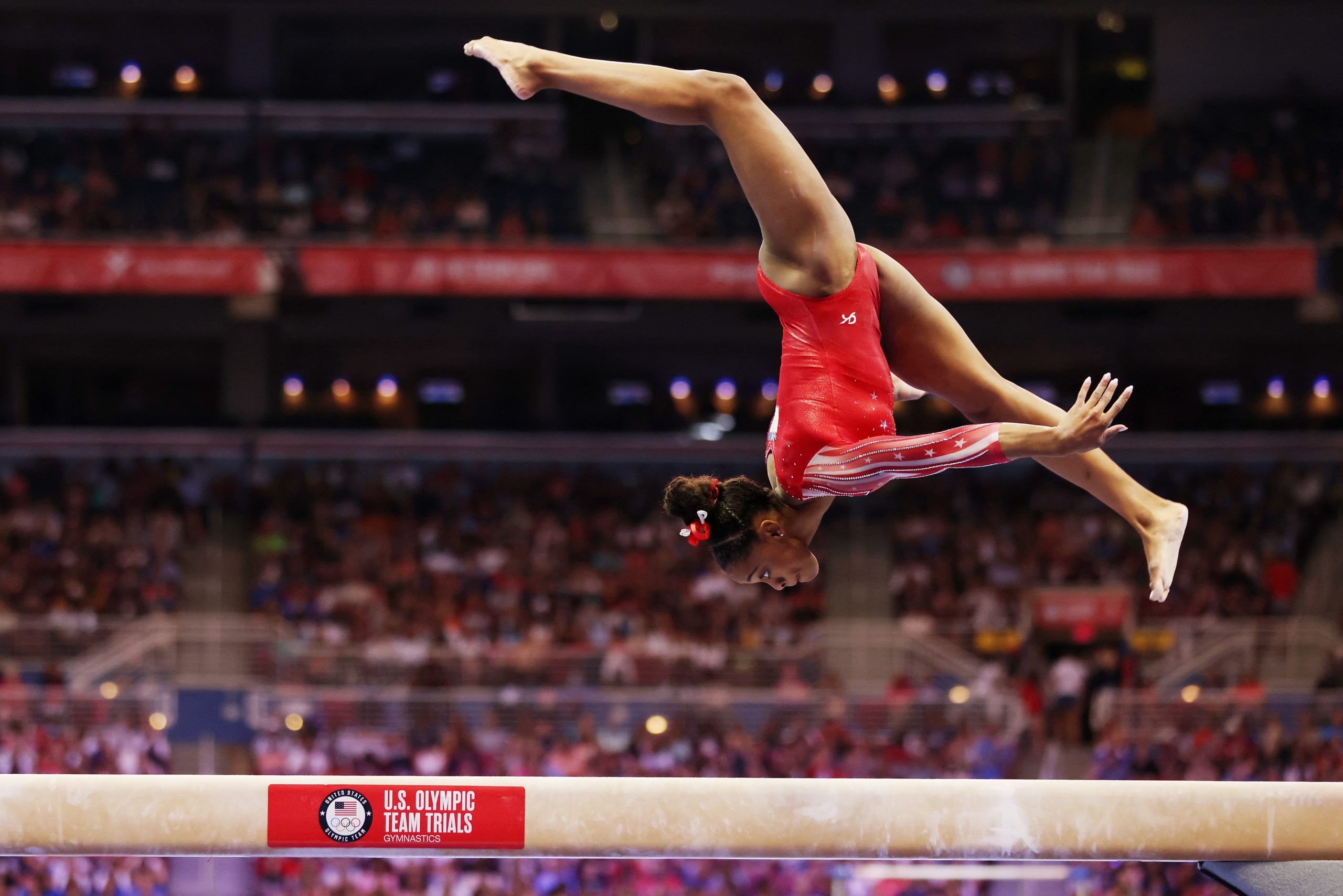
Which country plays the most diverse sports? Which has gained the most muscle mass since? Find out this and much more as we dole out medals based on data gleaned from the Withings community around the globe.
The Summer Olympics are always a celebration that participating countries look forward to. Whether you’re a sports fan or just enjoy lazing around in the hot hours of the day admiring athletes with mind-boggling performances, you certainly won’t want to miss out.
This year, we decided to look at metrics in our global community. The competition? We looked at the community data since the last Olympic Games in Rio in August 2016 to now. Read on to find out which nations are taking home Withings gold, bronze and silver in events that you won’t find in the real Olympics: quality of their collective sleep, time spent training, number of disciplines practiced, and overall muscle mass gained. Let the ceremonies begin!
National Sleep Score
As Tour de France champion Chris Froome assured us, good sleep hygiene is essential to athletic success . In the last 5 years, what country has racked up the most quality Zzz’s? Drumroll please… When we looked at the data, theSleep Score champions are none other than Finland in 1st place, Netherlands in 2nd place and Belgium in 3rd. Although Russia, China and Japan are probably going to be big medal winners in the summer games, for sleep, they are at the bottom of the ranking (18th, 19th and 20th respectively).
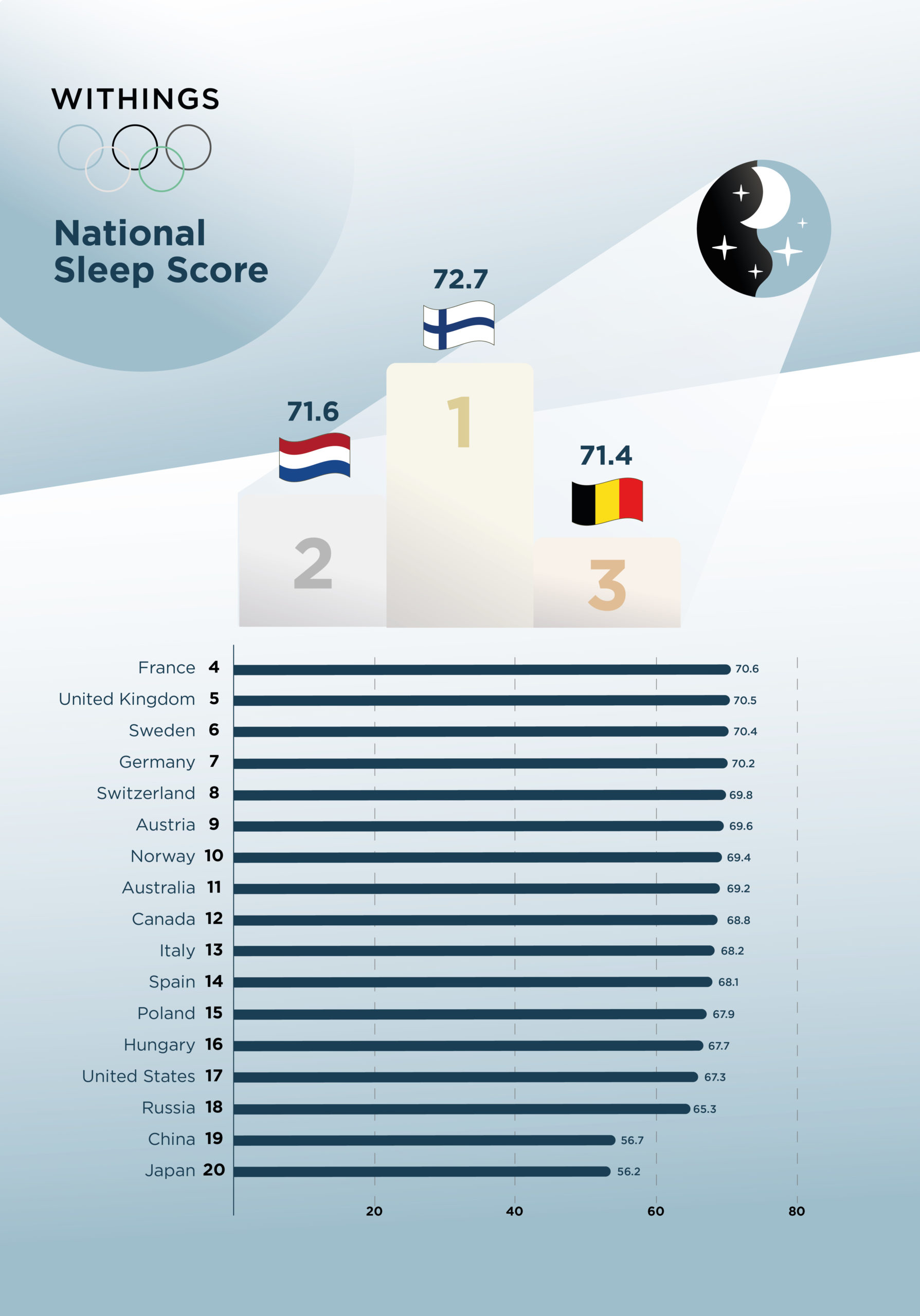
Number of Daily Steps
The countries that walked the walk and won for most daily steps since the games in Rio? It’s Spain taking the gold, Sweden the silver, and China, which edged out the UK to hit the podium in this event.
Countries that need to step up their game include the US, Belgium, France and Hungary.
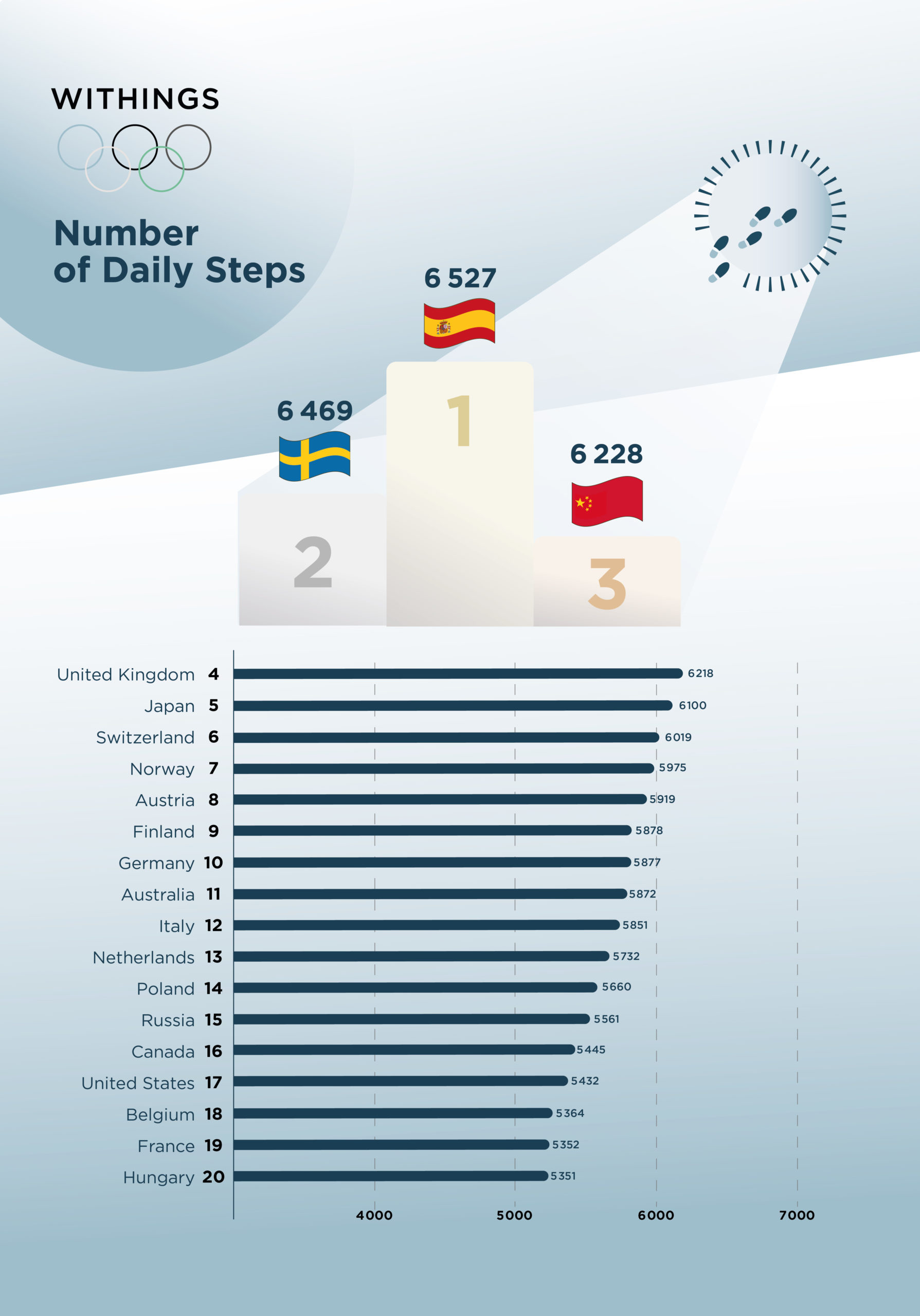
Number of hours spent swimming
But wait! Maybe France, the USA and Germany are back on track! While these countries might not have been great on land, they seem to excel in the water: when we looked at the ranking of the total number of hours spent swimming for our countries, these three hit the podium. And Australia, known for racking up more Olympic swimming medals than any other country, didn’t even make the top 10.

Number of different disciplines
If specializing in one discipline is important, practicing different activities can strengthen your skills in the discipline in which you want to medal, as shown in this article on the importance of building muscle to increase your running performance . So let’s see which countries get our medals for practicing the most sports by comparing the number of different activities practiced on average by its inhabitants.
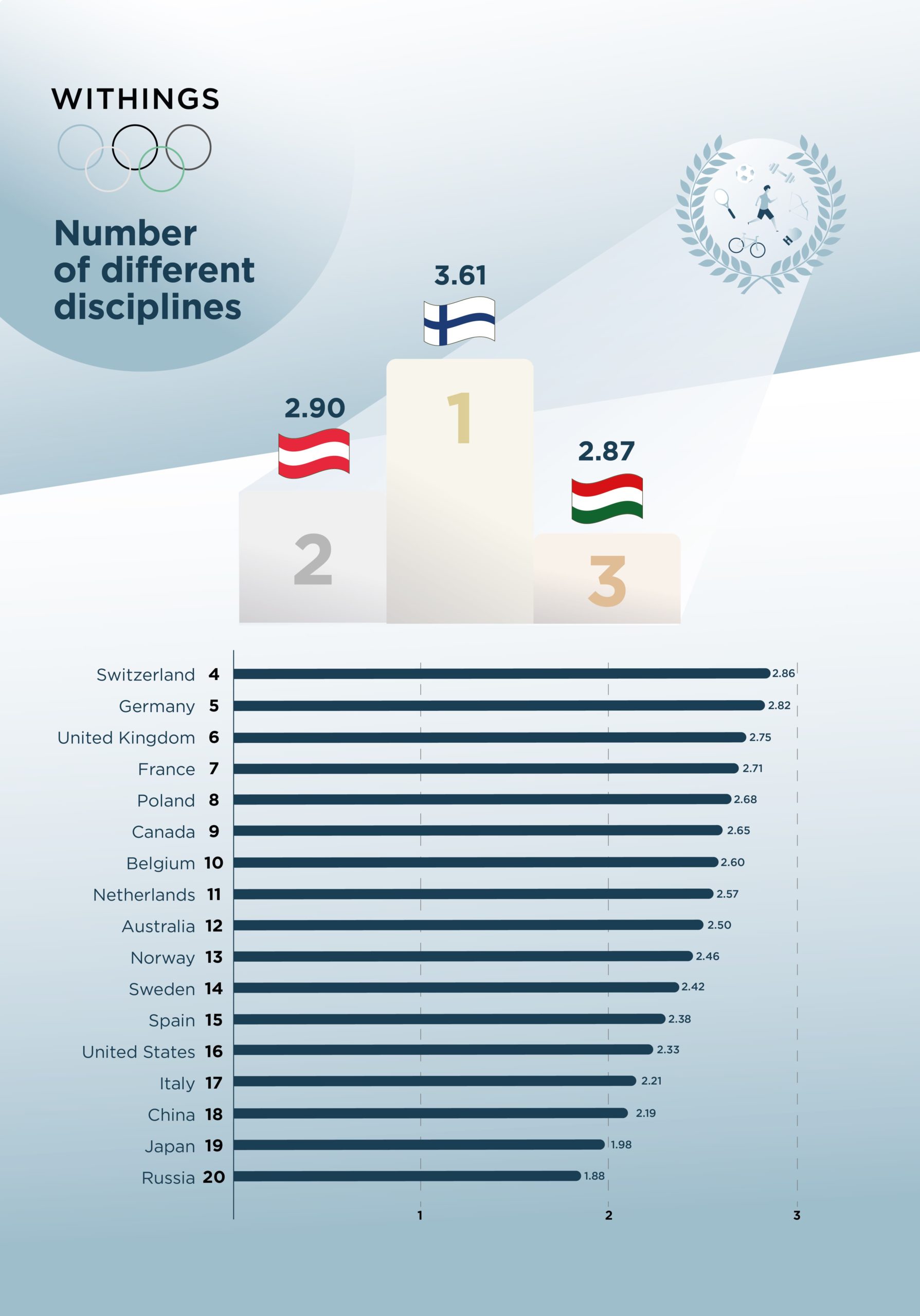
Finland snags gold and is impressive with an average of 3.61 different activities per user. If we believe the overall ranking of all activities practiced by all Withings users, there is a good chance that at least one of them is running, cycling, swimming or weight training, but it could also be yoga, ping-pong, or kite surfing.
Muscle mass gained
Nothing like a good old-fashioned muscle contest! We know which countries that got buff since Rio and it’s another Withings gold medal for Spain, silver for Italy and bronze for France.
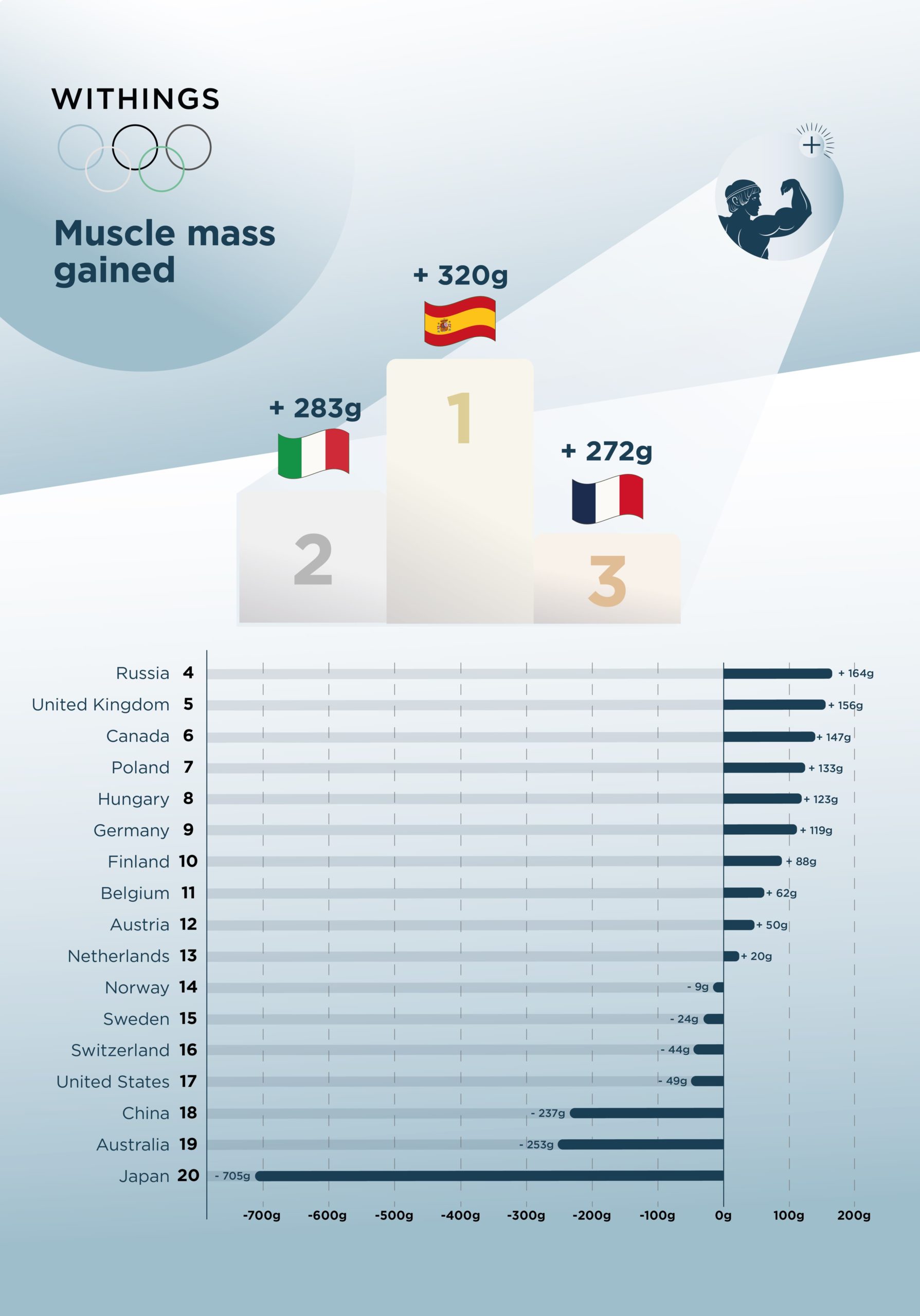
In China, Australia and Japan, it’s a different story.. Like Norway, Sweden, Switzerland and the USA, our data shows these countries have actually lost muscle mass instead of gaining it on average over the last four years.
Whether your country is on our podium or last in the ranking, it seems obvious that this year’s Olympics will offer us a great show. Now get out there and sleep, or step, or ping-pong your country to greatness for the next Withings Olympics.
Methodology
This study was conducted by Withings based on anonymous aggregated data from a pool of 5 million users of the Withings smart scale, hybrid smartwatches, and smart thermometer from around the world. Withings guarantees the confidentiality of personal data and protects the privacy of all its users. Therefore, all data used for this study was rigorously anonymized and aggregated in order to avoid any re-identification.


